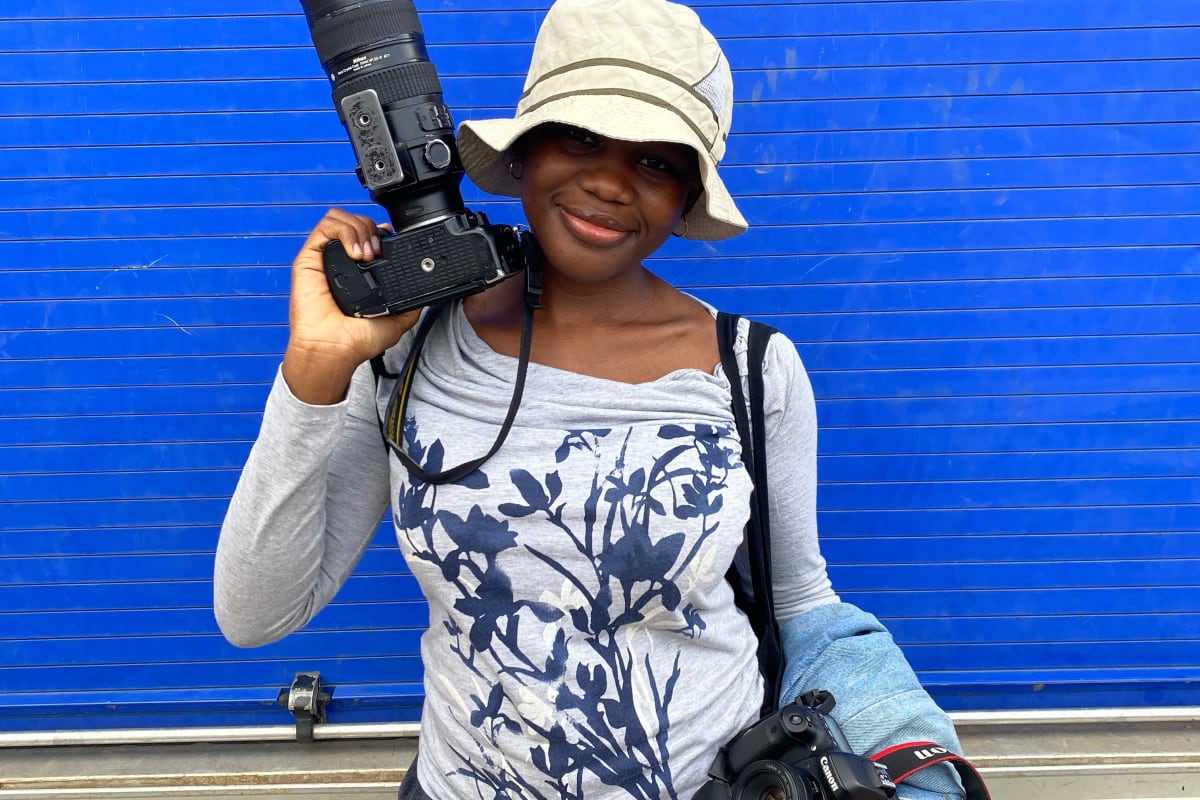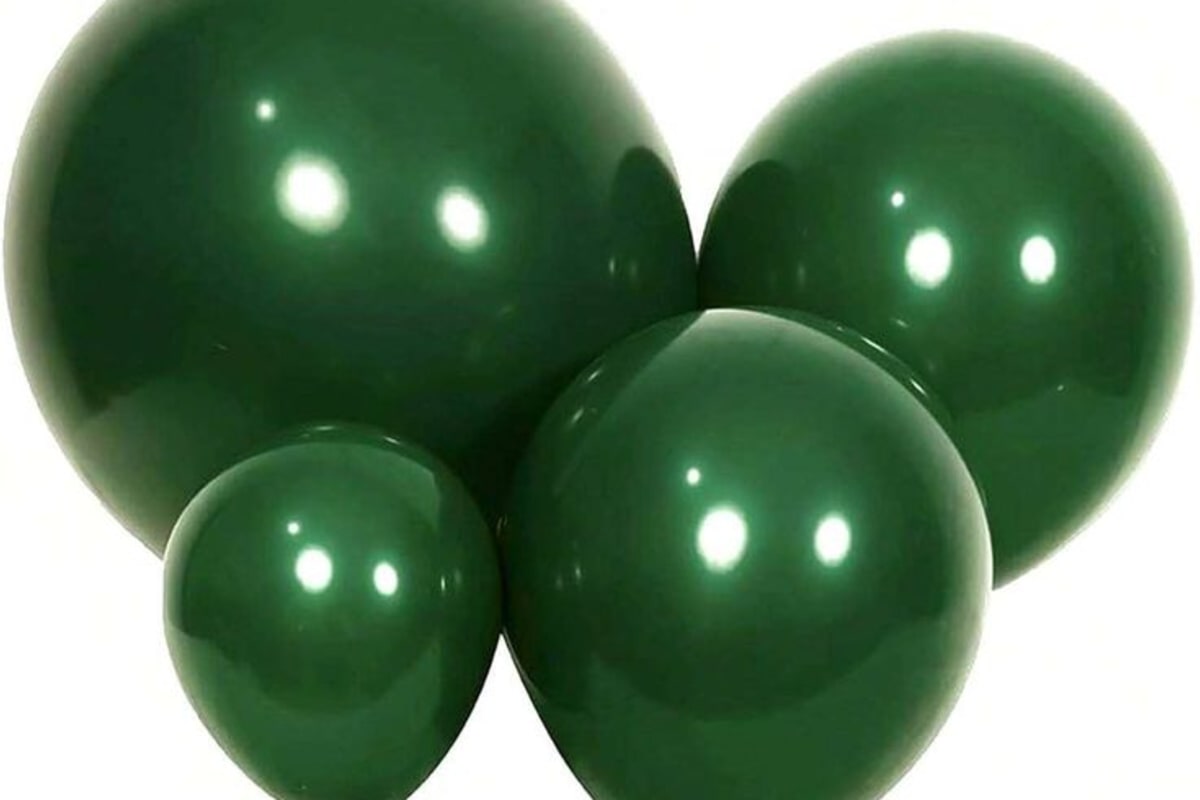Isn't it the irony of all ironies that a football-mad country like Nigeria struggles to draw fans to its local league? The NPFL, lauded in the past as one of Africa's powerhouses, now languishes among minnows and leagues from countries with a tenth of Nigeria's population.
Nothing offers a sharper insight into the league's continued sluggishness than sparsely filled stadiums across the country on matchdays and its many failed attempts at financial viability.
To test my initial theory for this piece, I spent two fruitless weeks in the Alakuko area of Ogun state, trying to find a fan of any of the twenty teams in the Nigerian football top flight. If I were looking for Spanish club supporters, all I'd have had to do was knock on my neighbour's gate. If I wanted fans of English teams, I'd simply head to a moderately crowded area—like a bus stop or newspaper stand— mention a club or player, and watch the debates ignite.
The good old days
Like many things in Nigeria —whether true or exaggerated— the NPFL has its own 'good old days' story, and Chinatu Jon, a longtime supporter of Enyimba and follower of the league, lived through some of it.
Now a journalist who writes Fan articles about Enyimba—one of the league's most successful teams—Chinatu recalls attending games as a small child in primary school.
"My grandparents lived close to the stadium, so my uncle would take me to weekend games. That's how I fell in love with the club, and it's been a joyride ever since," he tells me.
Like Chinatu Jon, many core fans of NPFL teams and the Nigerian league are millennials and older people who were indoctrinated early.
"The atmosphere was unbelievable. You see people shouting, you feel the passion, and you see the team winning. It just finds a way into your heart, and then you become insatiable—you just want to see more, you just want to win more. I don't know how to stop."
Like Chinatu Jon, Musiliu Akeula remembers NPFL games from his childhood as being akin to carnivals. "Everyone looked forward to the next time they could don their jerseys and cheer their teams on. It was a communal thing—the pride and excitement were collective."
In the years that Chinatu and Musiliu describe, Nigerian teams were enjoying their greatest successes at the continental stage—6 wins in CAF-sanctioned continental competitions in the eleven years, 1994 - 2005.
But like many things in Nigeria, the glory days were short-lived. Teams stopped winning continental titles, fans stopped attending games, and the children born in subsequent years were cut off from the joys of growing up with strong home teams. Instead, European leagues gained popularity, and we began to hear less and less of the NPFL.
The current days
As a young, football-loving boy growing up in Lagos, I exhausted all my tricks attempting to convince my parents to let me attend local matches at the stadium, and I failed at every turn. There was no malice; they simply wouldn't send their child out to arenas that could degenerate into violence for any reason or no reason at all.
For a long time, Nigerian league matches were synonymous with violence. Seemingly normal atmospheres could erupt in violence for reasons ranging from losses to poor team performance, excessive taunting from opposing fans, perceived injustice, or poor officiating.
These outbursts, usually targeted at opposing fans, claimed footballers, match officials, players, club officials, and even passersby. Kadiri Ikhana, the man responsible for half of Nigerian teams' CAF Champions League successes, was left with a permanent limp after being attacked by hooligans at a match venue in Kaduna.
Away wins, anyone?
In 2022, Eintracht Frankfurt fans got their hands on around 30,000 tickets to their UEFA Europa League Quarter-final Match against Barcelona, outnumbering the home fans and creating a hostile atmosphere that would culminate in a victory for the visiting Germans inside Barcelona's famous home ground.
A spectacle of this magnitude has been unattainable in the NPFL for many reasons. Bad roads and poor transport systems make moving between states a daunting task taken up only by the most strong-willed. Persistent inflation and poor economic decisions have put air travel out of the reach of most Nigerians. And then, there's the looming threat of violence. All these have made away games almost inaccessible for the average NPFL fan.
As if all of these do not garner enough concern, there also lives a spirit in the NPFL that makes away victories almost impossible. This Stears report revealed that only 5% of NPFL games in 2017 ended with a win for the away team. In the 2023/2024 season, that number improved to 8%, though six teams failed to register even a single win on the road. In the same year, 32% of games in the English Premier League ended with the away team victorious.
When I asked Chinatu Jon about this phenomenon, he blamed several things, but maintained that the main problem was from visiting teams approaching games too cautiously.
"Teams are scared. I can tell you categorically that any team that does away with that negative style of football (in away games) will win matches. Many teams think the best result they can get is a draw, so they score one goal and start wasting time."
Nigerians on Nairaland agree that visiting teams tend to be scared, though they attribute this fear to the troubling history of violence.
One passionate fan said: "The 'win at home' syndrome has left us with diverse tales, stories, and drama, making many home grounds of teams in recent times a no-go area for away teams and their fans. It has robbed us of the imminent competitive stance, which is the hallmark of sports – a visible reality that can be gleaned from leagues in other parts of Africa, like South Africa, Egypt, and Tunisia.
This is because teams approach away matches with the notion to lose in a bid to avoid trouble, a situation many former players and those still actively playing in the Nigerian Football League have alluded to. Little wonder that getting a draw or victory away from home is seen as a miracle. Something that is a norm in super leagues like the Spanish La Liga, the English Premiership, and the Italian Serie A, to mention but a few."
The democratisation of European leagues
In 1992, the English Football League underwent a rebrand that set the tone for its current successes. Chief among the sweeping changes was a special focus on media and democratisation by spearheading content and signing lucrative broadcast and TV deals that have put the league on screens across the globe and added significantly to its fanbase and profits.
It doesn't help that NPFL games are usually on at the same time as European league games, leaving viewers to choose between the superior audio and video quality on display in Europe or be patriotic and accept the NPFL's substandard offering. For most, the choice is obvious.
Chinatu Jon's uncle is one such person, having chosen to watch a Chelsea match at home over an Enyimba game at the stadium on one weekend. "I got so angry and thought, what kind of club will make me miss an Enyimba game? That's why I still hate Chelsea today."
As we don't have the capacity…
Most NPFL teams are government-owned, and as a result, there's little to no publicly available information about the finances of the league except for advertised sponsorship deals and paltry prize pools.
The NPFL has no title sponsor, and income from TV and broadcast deals is kept close to the vest. This season's champion pocketed a ₦200 million (about $100,000) prize that is dwarfed by the $500,000 received by winners of the Egyptian, Moroccan, and South African leagues.
This cash-strappedness also manifests in the quality of infrastructure that the country's top stars utilise.
The future
Although current conditions fuel pessimism, the NPFL is far from a lost cause. Nigeria remains a football-crazy nation with a population strong enough, in passion and sheer numbers, to make whooping successes of the things it enjoys.
Take Afrobeats, for example—the genre has risen from something teenagers loudly proclaimed their abhorrence of in a bid to look cool, to becoming the most sought-after music genre on the planet with its protagonists selling out some of the world's most famous arenas and stadiums.
To achieve a similar trajectory for the NPFL, Chinatu Jon believes that the people in charge must change their hard-coded views about football.
"Football is seen as a CSR, not as a business. As long as we don't see sports as a business, no businessman will want to invest in it. No one wants to come in, throw money around, get nothing (in return) and keep doing it."
Evidence from South Africa and Japan shows that a move like this could be the key to steering the NPFL on the path to its potential. After the 1996 merger between the NSL and NPSL in South Africa, the newly formed PSL was established as a private entity, independent of direct government control, focused on attracting private investment and sponsorships. Thirty years later, gambling company Betway will pay the South African league a whopping $47 million for title rights to the league.
Privately owned clubs as a sign of the possibilities
The history of privately owned clubs in the NPFL can be traced back to the 80s with Inwuanyanwu Nationale—the former Spartans FC and current Heartland. Shortly after being bought by Chief Emmanuel Iwuanyanwu, the team went on a rampage, claiming four successive titles between 1997 and 1990, and a fifth in 1993. In 2006, the Imo state government took over the team and named it Heartland FC. Heartland has won no league titles.
Then there was Julius Berger FC, who won the league twice in 1991 and 2000 before ultimately succumbing to financial challenges a few years later.
The new generation of privately owned teams in the NPFL is heralded by teams like Remo Stars, Sporting Lagos, and Ikorodu City, with evidence that they have learnt from the errors of their predecessors.
Remo claimed the league title and is renowned for having the most impressive stadium in the league.
Sporting Lagos was formed in 2022 and rose to the top flight in 2023 before suffering relegation that season. However, this blip hasn't deterred anyone around the club, with fans still flocking to the Mobolaji Johnson stadium every weekend to watch stars like Junior Lokosa in action. After a fruitful partnership with Klasha, Sporting secured a lucrative shirt sponsorship deal with Rexona while competing in the second division.
There's also Ikorodu City; the club has dazzled enthusiasts and observers, with fans often making a 37 km trip from Ikorodu to Onikan for home games in what has been an impressive top-flight debut.
Fans, media and community
In my conversation with Chinatu Jon, he lauded the owners of Remo Stars, Sporting Lagos and Ikorodu City. He credits their management with being forward-thinking and running their respective clubs the right way.
These newer privately-owned clubs are treading new waters with heavy investments in branding and media, quality fan engagement, and strong community-building efforts.
After Ikorodu City's hard-fought victory against Kwara United at the Mobolaji Johnson Stadium, people were intrigued by the atmosphere and the high turnout of Ikorodu City fans at the game.
According to the media personnel for the team, supporters in Ikorodu feel deeply connected to the team for many reasons: the club owner is seen as one of them, being an Ikorodu boy himself. The team also carries fans along, with incentives like club merchandise and bus rides to games.
Sporting Lagos is run by people with experience of huge success in tech, so the savviness with which the club operates surprises no one. With a dedicated brand storyteller and carefully curated experiences, Sporting is investing heavily in building a community that attracts young people, the same demographic the NPFL has inadvertently alienated. The outcome of this is a fanbase that still shows up in their numbers with passion in their hearts, rhythm in their voices, and vuvuzelas in their mouths, even when the club is relegated to the second division.
Conclusion
After a long spell of mediocrity, there is finally some reason to be hopeful about the Nigerian league. The presence of fresh, vibrant clubs and increasing media coverage is a step in the right direction. To maximise the impact of these additions, league administrators must work towards shedding old habits of violence and corruption to create an equitable system where results are won and hard work is rewarded. The league must also embrace modern reforms around financial regulations and club ownership. The roadmap is already right in their faces; it remains to be seen whether they will take the cue.


